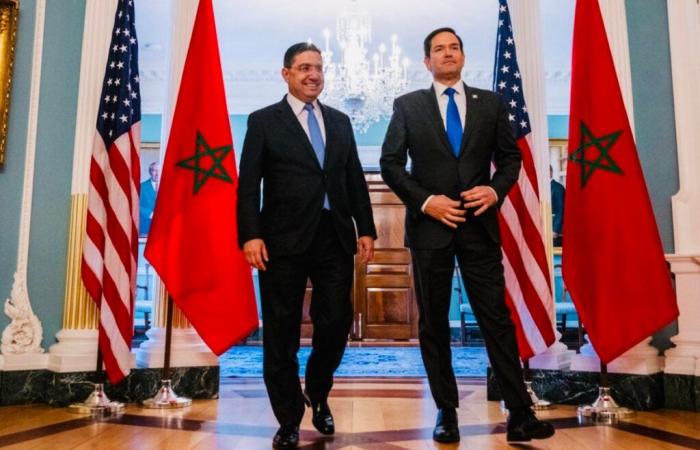
The proposal revolves around a common coordination and financing fund, placed under governance shared by the United States, Morocco and Israel. The author designs it as a PlUiseCTORiel system, oriented towards the realization of major projects in four major areas: energy, security, advanced industry and digital infrastructure.
Five years after the signing of the Abraham agreements, the relationship between Morocco and the State of Israel, supported by the United States, has certainly experienced a visible boom: ministerial exchanges, sectoral agreements, technical cooperation. However, for lack of a common structural framework, this convergence remains fragile, unfinished and exposed to political vagaries. In a study published by Atlantic Council, Aïssa Christophe Agostini, strategic advisor and founder of Prosper Atlas, proposes the creation of a Trilateral investment and coordination fundin order to convert this diplomatic momentum into concrete economic and geopolitical levers.
“Without a clear mechanism to transform this momentum into measurable strategic results, the risk of losing adhesion is real, and the alliance could remain largely symbolic, without delivering tangible effects on a regional scale”warns the author.
A sovereign instrument, not an assistance tool
The proposed fund would not be the logic of development aid. It would be designed as a Sovereign instrument with tripartite governancebringing together state representatives, economic actors and influential members of the diasporas of the three countries. Its objective: to finance projects with a strong strategic anchoring in key fields – energy, industrial transformation, critical infrastructure, security technologies, defense, logistics and maritime innovation.
“This forum would be responsible for coordinating fragmented efforts within the public and private sectors of each country, and to finance directly projects with a strong strategic anchor”explains Mr. Agostini. He specifies that the projects would be retained according to rigorous criteria: economic viability, geopolitical relevance and clearly established return on investment.
The creation of a permanent coordination forum This architecture would complete, offering a concertation and programming space between the three partners, in order to harmonize calendars, sectoral priorities and financial resources.
A strategic response to global recompositions
-For the United States, this trilateral structure would constitute a structured and innovative response to current upheavals in the global geopolitical order. Mr. Agostini identifies three main advantages. First, a Credible counterweight to the growing influence of rival powers. “If designed with appropriate resources, this forum would constitute a competitive response to these hegemonic ambitions”he writes by evoking China, Russia and Iran, which multiply investments in the Mediterranean, the Sahel and North Africa.
Then, the fund would make it possible to materialize the 2020 agreements. “Since the signing of agreements, the majority of commitments have remained bilateral and fragmented, often carried by ministries, private operators or external partners, without common vision”he regrets. This absence of coordination prevents the pooling of successes and harms the strategic readability of the rapprochement.
Finally, the fund would offer Washington A modern, readable and profitable influence toolallowing to involve your companies in regional projects, to secure its supply chains, and to strengthen its presence in a sensitive strategic space. “This fund could generate concrete profits, while integrating the American partners in the ecosystem of the Abraham agreements”affirm m. Agostines.
Roadmap and credibility conditions
The author recommends a gradual implementation in three stages. First, a phase of political agreement and institutional conception, bringing together the three parties around a precise governance framework. Then, the launch of pilot projects in priority sectors, through organizations such as Development Finance Corporation. Finally, the institutionalization of the fund in a sustainable structure, capable of swarming in other geopolitical spaces.
The success criteria identified by Mr. Agostini are unambiguous: investments mobilized, created jobs, supported intergovernmental coordination, training effect on other regional executives.
In conclusion, “A trilateral forum capable of concretizing the promises of the Abraham agreements represents a unique opportunity to anchor American engagement in a region of capital geopolitical importance”he says. This system would offer a new method of strategic alliance: no longer based on abstract commitments, but on the convergence of economic, industrial and diplomatic interests.







